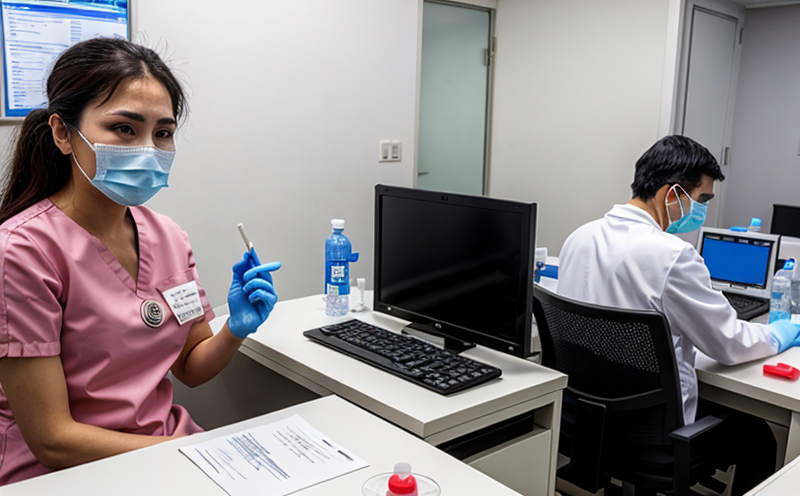Astrovirus Detection Testing in Livestock
Understanding astroviruses is essential for the healthcare and veterinary sectors. Astroviruses belong to the family Astroviridae, which includes a variety of viruses that can infect humans and animals, causing gastroenteritis. In livestock, these viruses have been linked to significant economic losses due to diarrhea, reduced growth rates, and increased mortality in young animals.
The detection of astroviruses is critical for early diagnosis and implementation of preventive measures. This testing service aims to provide accurate and reliable results using state-of-the-art molecular methods such as real-time PCR (polymerase chain reaction) technology. The process involves collecting fecal samples from affected animals, extracting viral nucleic acids, and amplifying specific regions of the astrovirus genome.
Our team of experts ensures that all tests are conducted in accordance with stringent quality control protocols to ensure the accuracy of results. This includes adherence to internationally recognized standards such as ISO 15189 for proficiency testing and ISO/IEC 17025 for laboratory accreditation. Our facilities are equipped with advanced instrumentation, including real-time PCR machines from reputable manufacturers like ABI (Applied Biosystems), which allow us to perform rapid and precise detection.
The significance of our testing extends beyond just diagnosis; it also plays a crucial role in epidemiological studies and vaccine development efforts. By identifying the presence of astroviruses, we can contribute to better understanding their lifecycle, transmission dynamics, and potential impact on animal health. This information is invaluable for researchers working towards more effective treatments and control strategies.
For quality managers and compliance officers, this service offers valuable insights into maintaining optimal hygiene standards within farms and slaughterhouses. Regular testing helps prevent outbreaks by identifying infected animals early in the process. In R&D environments, our results support ongoing efforts to develop new diagnostics tools or therapies targeting astroviruses.
Proper sample collection and handling are paramount for ensuring accurate test outcomes. Specimens should be collected from affected individuals only after obtaining informed consent if necessary (for instance, in research settings). Samples must then be transported under appropriate conditions to our laboratory where they undergo rigorous processing steps before being analyzed.
| Standard Number | Description |
|---|---|
| ISO 15189:2012 | Proficiency Testing for Clinical Laboratories |
| ISO/IEC 17025:2017 | Laboratory Accreditation Requirements |
The application of these international standards ensures that our laboratory remains at the forefront of scientific excellence, providing reliable data for clients across various sectors.
Why It Matters
Effective detection and management of astroviruses in livestock are crucial not only from an animal welfare perspective but also for maintaining public health standards. When these viruses spread among animals, they can pose risks to human populations through foodborne transmission pathways such as contaminated meat products or water supplies.
The economic implications cannot be overstated; outbreaks of astrovirus-related illnesses often lead to substantial financial losses due to increased veterinary costs, decreased productivity rates, and potential market closures. Early intervention allows for targeted treatments which can mitigate these impacts significantly.
From a broader societal viewpoint, ensuring the safety of our food supply chain is paramount. By implementing robust testing protocols early in production cycles, we help safeguard against contamination events that could compromise consumer trust or lead to regulatory actions. Our services thus contribute towards creating safer environments for both animals and humans alike.





